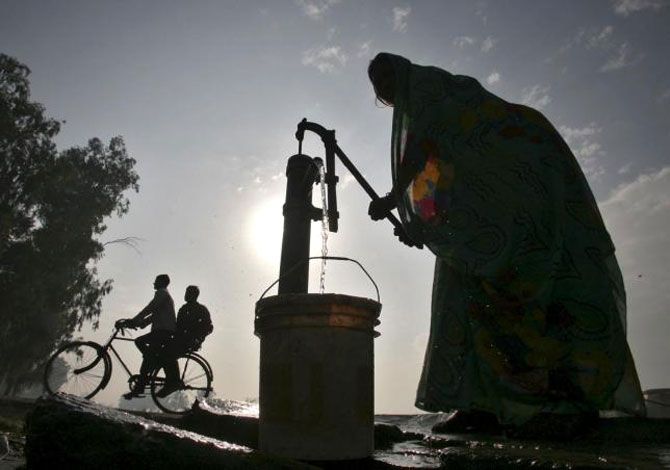The most worrisome aspect is that most water woes are the result of mismanagement

Prime Minister Narendra Modi’s well-meaning plea in his monthly Mann Ki Baat programme to preserve every drop of water may have been prompted by the prevailing acute water crisis in large parts of the country, but it is, in fact, a long-term necessity.
Water in many of India’s 91 major reservoirs has plunged close to minimum levels, and most other surface water bodies, including ponds, tanks and dug-wells have dried up. Water level in subsurface aquifers, too, has dipped to “critical” levels, implying that withdrawals exceed annual recharge.
Worse still, a Central Groundwater Board report indicates that nearly half of India’s groundwater is heavily polluted with toxins like fluoride, nitrates and even arsenic, which cause dreaded ailments like diarrhoea, typhoid and viral hepatitis.
Seepage of agro-chemicals and discharge of untreated industrial effluents and urban wastes into water bodies are adding to the pollution of surface and groundwater sources, turning them unfit for drinking and, in many cases, even for irrigation.
The most worrisome aspect is that most water woes are the result of mismanagement. India may not qualify as a water-rich country; but it is not water-starved either.
The country’s total area-weighted average annual rainfall of around 120 centimetres compares quite favourably with the global average of 100 cm. However, since a sizable part of this rainfall, nearly 89 cm, comes in the monsoon season (June to September) and its geographical spread is uneven, proper conservation and judicious use of rainwater are imperative.
Official policies governing the water sector are, unfortunately, far from conducive to achieving this vital goal. A basic requisite like treating water as an economic good and putting a proper price on it has been ignored for long.
Nor has is it been fully appreciated that water is a dynamic resource; its reckless exploitation in one region can have repercussions in nearby areas. The National Water Policy of 2002 categorically disapproved of indiscriminate use of the available water. It suggested that water should be priced in such a manner as to reflect its scarcity value.
Regretfully, this wise counsel has gone largely unheeded. Some states, which imposed water charges, did so halfheartedly by keeping the tariff rather low and making little effort to actually enforce it. Worse still, many states are supplying free water for irrigation and domestic use and are even providing free or subsidised power to encourage its wasteful use. This has proved ruinous.
Dispelling the notion that water, being a renewable natural resource, is inexhaustible has to be the first logical step towards eliciting people’s support for a policy to price water and ensure its efficient conservation, judicious upkeep and use. Since the bulk of water goes in crop irrigation, cropping patterns need to be tailored according to its availability.
Where replacement of water-guzzling crops like paddy and sugarcane with low water-requiring ones is unfeasible, micro-irrigation systems like drip and sprinkler irrigation should be promoted. Modifications in cropping schedules should help, too.
Punjab’s well-advised move to ban paddy planting in the hot and dry month of May, when water losses due to evaporation are the highest, seems to have paid off. The water table has begun to recover in that state. Promotion of proper use of pesticides and fertilisers to prevent them from polluting water sources is also necessary to guard the quality of water and keep it safe for use.
Photograph: Munish Sharma/Reuters












 © 2025
© 2025